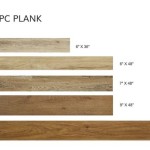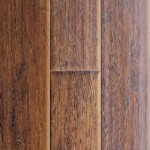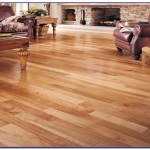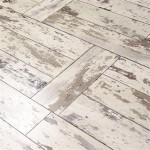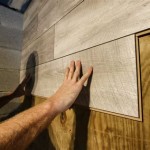Essential Aspects of Engineered Vinyl Plank Flooring Underlayment
When installing engineered vinyl plank (EVP) flooring, the underlayment you choose plays a crucial role in the overall performance and longevity of your flooring system. Understanding the essential qualities of an effective EVP underlayment will help you make an informed decision.
Moisture Resistance
EVP flooring is not completely waterproof, so moisture resistance is paramount in the underlayment. It should effectively guard against moisture vapor permeating from the subfloor, which can damage the flooring over time. Look for underlayments with a high moisture vapor transmission (MVT) rating or an integrated moisture barrier.
Sound Insulation
A quality EVP underlayment should provide excellent sound insulation. This is especially important in multi-level homes or apartments where noise transmission can be a concern. Choose an underlayment with a high impact sound reduction (ISR) rating, which measures its ability to absorb and minimize footsteps, dropped objects, and other impact noises.
Thermal Insulation
EVP flooring can feel cold underfoot, especially in colder climates. To enhance comfort and energy efficiency, consider an underlayment with thermal insulation properties. It can provide an extra layer of insulation, reducing heat loss through the floor and creating a warmer, more comfortable living space.
Flatness and Dimensionality Stability
An underlayment should ensure a flat and stable base for the EVP flooring. This helps prevent unevenness, buckling, or other issues that can compromise the integrity of the flooring. Choose an underlayment with a high compressive strength rating, which indicates its ability to withstand weight without compressing excessively.
Compatibility and Warranty
Ensure the underlayment you select is compatible with your specific EVP flooring. Different flooring systems may have unique requirements, and using an incompatible underlayment can void the flooring warranty. Always check the manufacturer's recommendations and warranties to ensure compatibility.
Additional Considerations
In addition to these essential qualities, consider the following factors when choosing an EVP underlayment:
- Thickness: Thicker underlayments provide better sound and thermal insulation.
- Roll vs. Sheet: Rolls are easier to install, while sheets offer better sound insulation.
- Cost: Underlayments vary in price depending on their features and quality.
By carefully considering these aspects, you can select an EVP underlayment that meets the specific needs of your flooring system and provides optimal performance, comfort, and durability.

Underlayment For Vinyl Flooring The Only Guide You Need Floor City

Underlayment For Vinyl Floors 2 Big Questions Answered Pliteq Inc

Underlayment Buyer S Guide

Do You Need Underlay With Luxury Vinyl Flooring Lvt Or Lvp Wood And Beyond Blog

A Beginner S Guide To Installing Vinyl Plank Flooring Dumpsters Com

Underlayment For Vinyl Plank Flooring Mp Global Introduces Soundbuffer

How To Prepare A Concrete Floor For Vinyl Flooring Parrys

4 Ways To Prevent Moisture Damage Under Luxury Vinyl Flooring Floor Trends Installation

Underlayment Buyer S Guide

Quietwalk Luxury Vinyl 6 Ft W X 60 L 1 4 T Premium Felt Moisture Resistant Flooring Underlayment 360 Sq Roll In The Department At Com
Related Posts




